In 2021, the Chilean Ministry of Transport and Telecommunications, the VTR Foundation, and the Criteria Foundation released the report “An in-depth analysis of elderly people: Seniors Tech (Radiografía de personas mayores: Seniors Tech)”, which was the first Chilean study focused on the digitalization of Chilean older adults.
The report covered a sample of 700 participants between the ages of 60 and 80, of whom 40% reported having learned to use smart devices amid the pandemic, 7 out of 10 knew the meaning of digital literacy, and 92% of them appreciated the use of the Internet in their lives after the Covid-19 pandemic.
Given this new scenario, from Wikimedia Chile, we joined Google Chile to promote the series of workshops “Older adults and digital environments: tools for integration”, in which we seek to respond to the new requirements of an increasingly digitized older population.
This first draft of the workshop was conducted together with the Municipality of Quilicura, between the months of October and December 2022, and gathered about 40 attendees, who throughout the sessions learned tools to prevent scams, recognize fake news, and surf the Internet more safely.
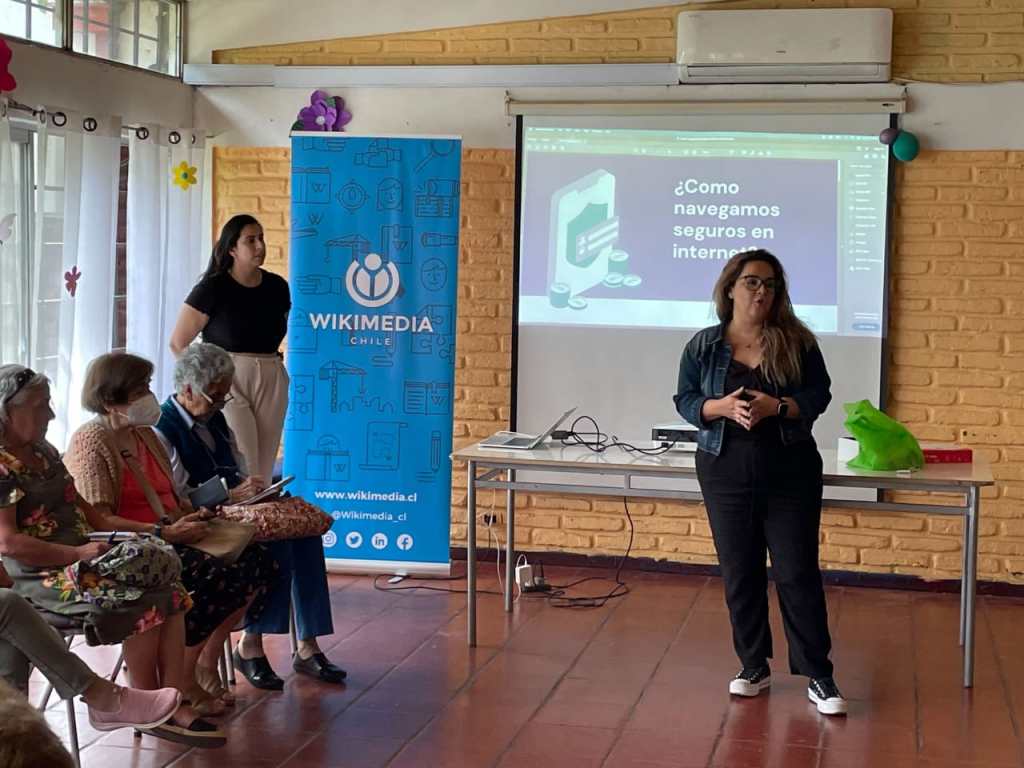
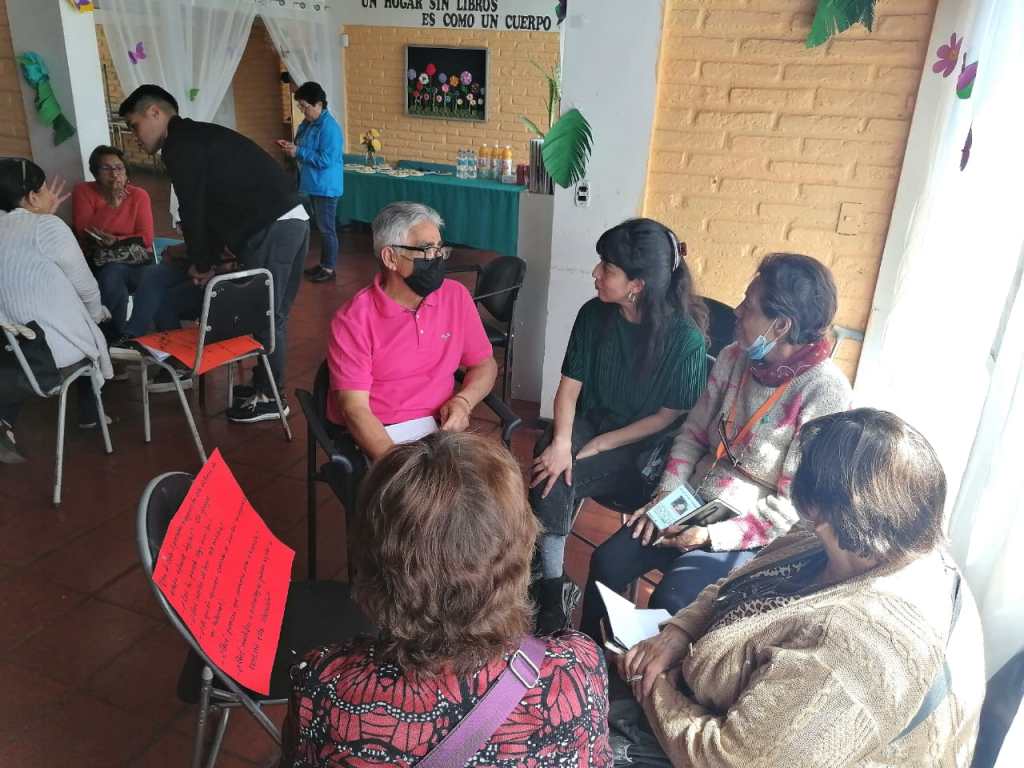
Our methodology: dialogue, participation, and exchange of experiences.
Despite the growing integration of the older adult population into digital environments after the pandemic, at the moment this group is not considered in the few digital literacy plans that exist in Chile, and they still do not have a presence within the Wikimedia movement. Given this, from Wikimedia Chile we decided to create a work in progressive stages, starting with a small-scale educational project with a group of older people attending the Centro Integral El Mañío (CIAM) in the municipality of Quilicura.
“We were able to notice two major areas of need: misinformation and cyber fraud. Within the community itself, they are aware that there is disinformation and that they are a target audience for cyber fraud, so they required tools to be able to face these two things”, the head of the Community and New Users program of Wikimedia Chile, Carla Toro, explained.
For this reason, this first edition of the project focused on digital literacy from a dialogic and participatory perspective. To do so, we created a space for dialogue to learn about their experiences, uses, and opinions about what they consume on the Internet, with the goal of teaching them how to make a critical reading of online information spaces, such as Wikipedia.
In these spaces, attendees shared with us their desire to learn more tools to feel autonomous and safe in digital environments. In this regard, and as a way to promote self-empowerment, during the sessions they were encouraged to collaboratively create audiovisual material in which they could express what they learned and then share it with their peers. This resulted in the digital campaign “Don’t get caught by technology: Older people informed”, in which the participants invited other older adults to lose their fear of digital environments, and shared the tips they learned to identify false information and avoid being victims of scams.
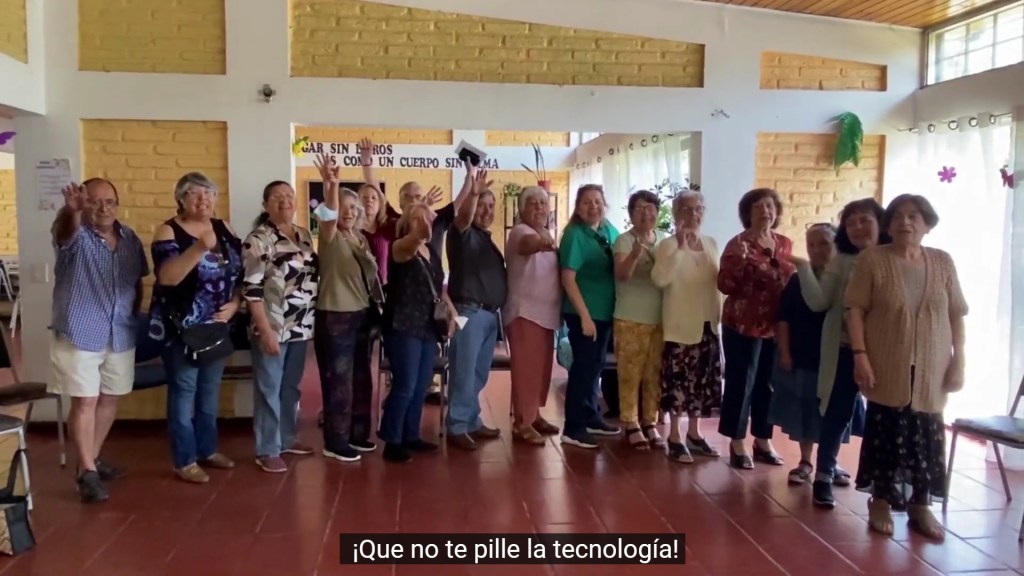
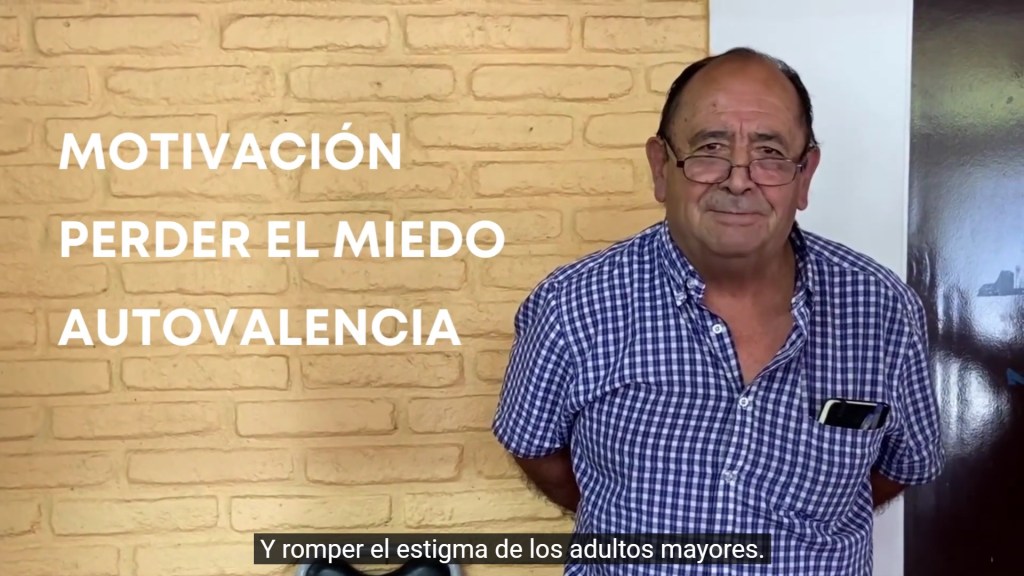
The challenges: promote integration and bring more specific knowledge.
Throughout the work with older people, from Wikimedia Chile, we identified a series of challenges that we will seek to address in new versions of the workshop in 2023, such as learning more about their experiences with social networks and online news portals, which according to what we found in this first edition, are some of the primary ways in which this group tends to interact with the Internet.
“The principal value of this workshop is that it is very versatile, flexible, and adaptable to the diversity of older people and their skill levels. The program also fits very well with what they experience and deal with in the virtual environment. We had very active participation from start to finish because of these elements, a group was formed with a lot of connection and motivation to continue participating in the future”, said Denisse Monsalve from the Directorate of Community Development (Dideco) of the Municipality of Quilicura.
Along with this, we will continue to promote a participatory approach, encouraging them to explore digital environments without fear:
“First, we must stop looking at older people as a community that cannot adapt to technology, because the truth is that they can. These workshops intend to open the door for them to develop their digital skills and that they can also do it securely,” says Carla Toro from Wikimedia Chile.
Following the success of this first workshop, since March we will work to generate new partnerships to replicate this model of workshops with other NGOs focused on the digitization of the older adult population, in order to continue providing educational opportunities to a community that still has significant gaps in representation both in digital environments and in the Wikimedia movement.
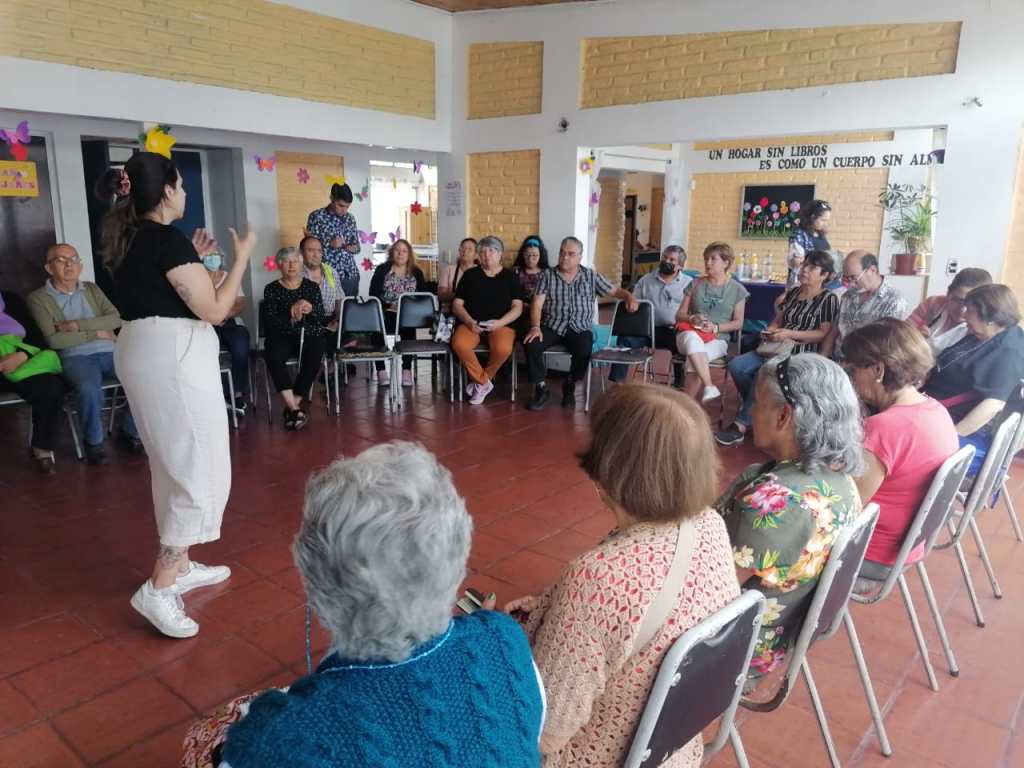
If you are interested in learning more about Wikimedia Chile’s work with underrepresented communities on the Internet, you can write to us at actividades@wikimediachile.cl
Photos: Michelle Martínez (CC BY-SA 4.0)

Can you help us translate this article?
In order for this article to reach as many people as possible we would like your help. Can you translate this article to get the message out?
Start translation